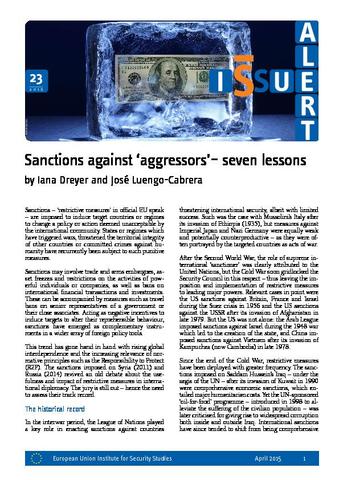You are here
Sanctions against ‘aggressors’– seven lessons

Sanctions – ‘restrictive measures’ in official EU speak – are imposed to induce target countries or regimes to change a policy or action deemed unacceptable by the international community. States or regimes which have triggered wars, threatened the territorial integrity of other countries or committed crimes against humanity have recurrently been subject to such punitive measures. Sanctions may involve trade and arms embargoes, asset freezes and restrictions on the activities of powerful individuals or companies, as well as bans on international financial transactions and investments. These can be accompanied by measures such as travel bans on senior representatives of a government or their close associates.
Acting as negative incentives to induce targets to alter their reprehensible behaviour, sanctions have emerged as complementary instruments in a wider array of foreign policy tools. This trend has gone hand in hand with rising global interdependence and the increasing relevance of normative principles such as the Responsibility to Protect (R2P). The sanctions imposed on Syria (2011) and Russia (2014) revived an old debate about the usefulness and impact of restrictive measures in international diplomacy. The jury is still out – hence the need to assess their track record.